The New Mexico State Library is pleased to be participating in the state-wide Summer Intern program to offer experience in the operations of the state library and working for the state of New Mexico. We have two excellent graduate interns working with the NMSL Development Bureau on our upcoming Circulating Kits and Traveling Exhibits program and with our Youth Services Coordinator on Summer Reading site visits. Jennifer Chen is a native Californian and a recent MLIS graduate from San Jose State University expanding on her experience in public libraries in California. Marley Jameson-Sisneros will begin her MLIS studies this Fall after working in academic libraries as an undergraduate and is discovering new parts of her native New Mexico. Jennifer and Marley will be reporting on their experiences and takeaways from library visits around the state. You can read about their experience in Moriarty and Estancia here.
By Marley Jameson-Sisneros
Continuing our visits to Summer Reading Programs around the state, on Thursday the 29th my mentor Kelly McCabe, fellow intern Jennifer, technical services staff members Joseph and Sarah, and I made a trip down to Rio Rancho Public Library to meet with staff at the Loma Colorado Branch and observe the Tween Sewing program happening in the afternoon.
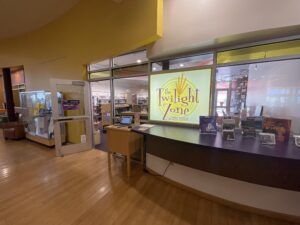
As we walked in, we were greeted by the beautiful open space, large windows, and natural lighting. Youth Services Supervisor Brynn Cole gave us a tour of building. Across from the self-checkout kiosks displaying graphics for the Summer Reading Program, Cole showed us the “Twilight Zone,” the branch’s teen area. The area had an extensive manga and young adult collection and was decorated with a Pride display for June. As a teen, I would have found the space very inviting. Both the Twilight Zone and the children’s area face a beautiful patio which Cole hopes to utilize for more outdoor programming in the future. The children’s section is surrounded by windows facing the desert landscape behind the building. Cole was excited to tell us that the library is beginning to introduce more toys back into the space. Since COVID, the turn away from communal toys is one many public libraries are familiar with, but Rio Rancho aims to bring easier to clean toys back as they are reintroduced into the space. In the large programming space with a stage near the entrance of the library, we observed the Tween Sewing program. The attendance was great, with groups of tweens working at most of the tables in the large space. Youth programs workers were passing out kits at the back of the room, near the entrance. The kits provided the supplies to sew and stuff small felt sea creatures.
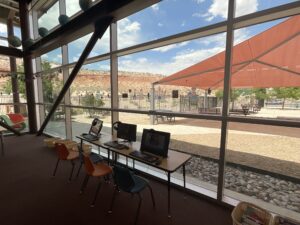
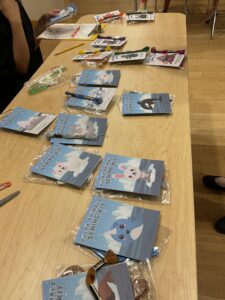
This variation in demographics affects programming at each of the individual branches. However, there is also some overlap in the patron base. Some caregivers take children to multiple branches and thus Cole sees value in variation between story times at the different branches to make it an exciting experience each time. This is something I hadn’t considered before. It made me think about the factors I may not have thought about that go into play when programming for multi-branch library systems and rural libraries. For example, I hadn’t previously thought about patron overlap between branches and how that may be more of a factor to consider in a system rather than at more rural libraries. Even in determining programming, a larger library with more staff, multiple branches, or where a supervisory position exists may require more communication with staff in preparation.
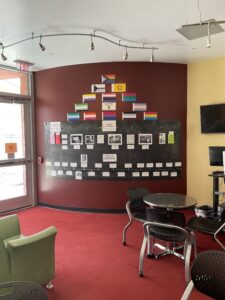
Attention has been on Rio Rancho Public Library recently because of the proposed book challenges in the city. With the rise of these challenges nationwide, the library did a lot to prepare for the book ban challenges, including training with the ALA Office of Intellectual Freedom. Rio Rancho set a valuable example. Library staff were prepared and once the city had voiced support for the libraries, things did significantly calm down. Rio Rancho was given the challenge of setting a precedent in New Mexico as they are the first library system to be presented with this challenge by a national group. Cole spoke to us about the situation and offered her own valuable insights. “We don’t want to silence voices; we want to add voices.” Cole said.
Regarding the collection, Cole spoke to us about demographics that are difficult to reach. For example, the library has been able to collect more data about the homeschooled population, a population Cole believed could be better served, because of the Summer Reading Program. This year, Cole reported to us 1,748 sign ups throughout the three branches for the Summer Reading Program, and frequent programming to coincide. Over 200 of these sign ups were homeschool students. To add voices, it is important to know what voices in the community need increased representation and resources.
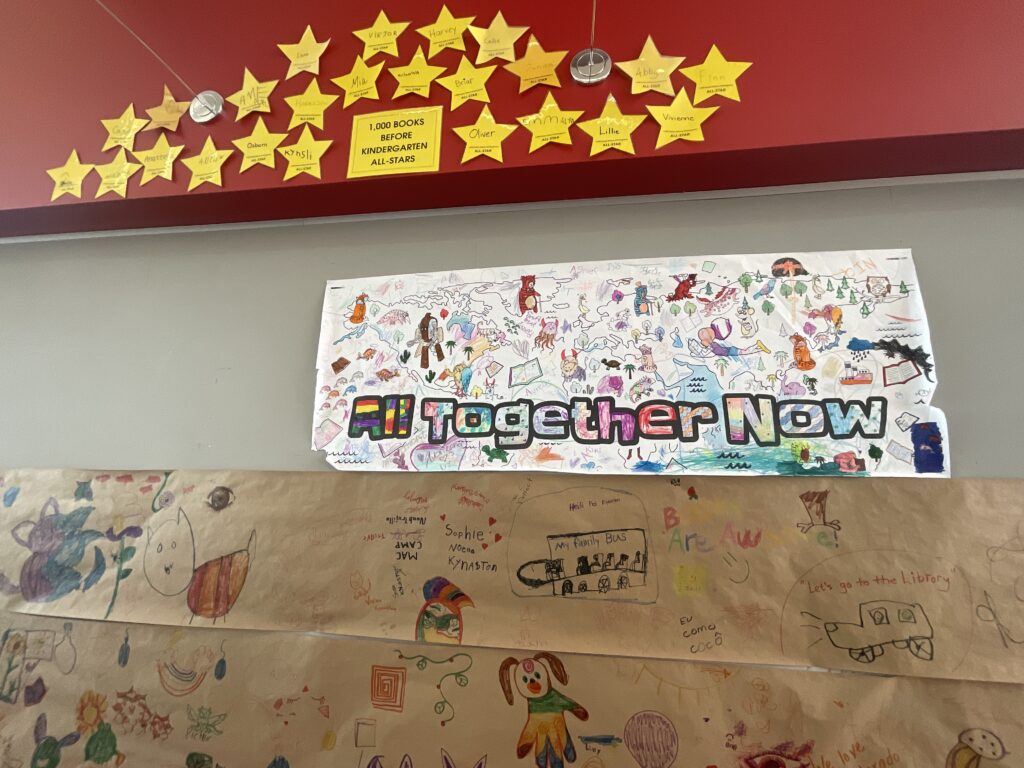
"We don’t want to silence voices; we want to add voices."
I found Brynn Cole’s insights very valuable and enjoyed speaking with her. Hearing Cole speak about her passion for her work and the importance of what we do as library professionals was very inspiring. She spoke to us about her goals for youth programming and I am eager to see how she comes to achieve them. Thank you to Loma Colorado staff for having us and answering our questions, it was a valuable educational experience.
